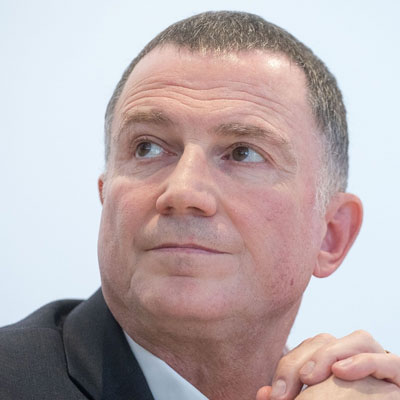Born and raised in Haifa, Odeh boasts a long political career. He represented Hadash on the Haifa City Council in the late 1990s and early 2000s, becoming the party’s secretary-general in 2006. He was elected leader of the party in 2015 and placed first on the Joint List’s ticket for the general election that year.
What Ayman Odeh says about the Gaza Strip
“The problem is the occupying state – Israel. They closed Gaza, threw the key into the sea and said ‘We’re not responsible.’ The army drew up this imaginary line [the Gaza border fence] and whoever crosses it — kill them. Period. Is that the only way to address this matter?”
“Look at how the Israeli public views [those Gazans] killed [in the Great March of Return]. That is contempt for human life.”
What Ayman Odeh says about Jerusalem
“Jerusalem will remain for its people, standing strong, winning and the capital of Palestine.”
What Ayman Odeh says about Palestinian citizens of Israel
“When the rights of minorities are trampled on in a democracy, it is not an internal issue. The [Nation-State Law] harms Arab citizens, Israeli democracy and the possibility of forming a Palestinian state and achieving peace.”
“We, Arab citizens, will rush to the polls en mass, and we will increase our power, now more than ever before. Whoever seeks to make a division and a stumbling block between Jews and Arabs, or between Arabs and Arabs strengthens [Israeli Prime Minister Benjamin] Netanyahu and the right. They want us weak and divided, but we will be strong together.”
“The residents of the small [Bedouin] village of Umm Al-Hiran, whose 1,000 residents are Palestinian citizens of Israel, tasted the continuing Nakba bitterly [when their homes were demolished by Israel].”
What Ayman Odeh says about the West Bank
“Time and again Netanyahu chooses to continue the occupation and military control of another people. [He spends] 22 million shekels [$6 million] to expand the occupation, straight from government ministries; for the benefit of a handful of extremist settlers, the government is trampling its citizens. We choose peace and you choose apartheid.”
“If the government follows through on its desires to annex the West Bank without providing full equal rights to its Palestinian residents, it won’t be a new Nakba. It will be the continuation of one that has never fully ended.”







































































































